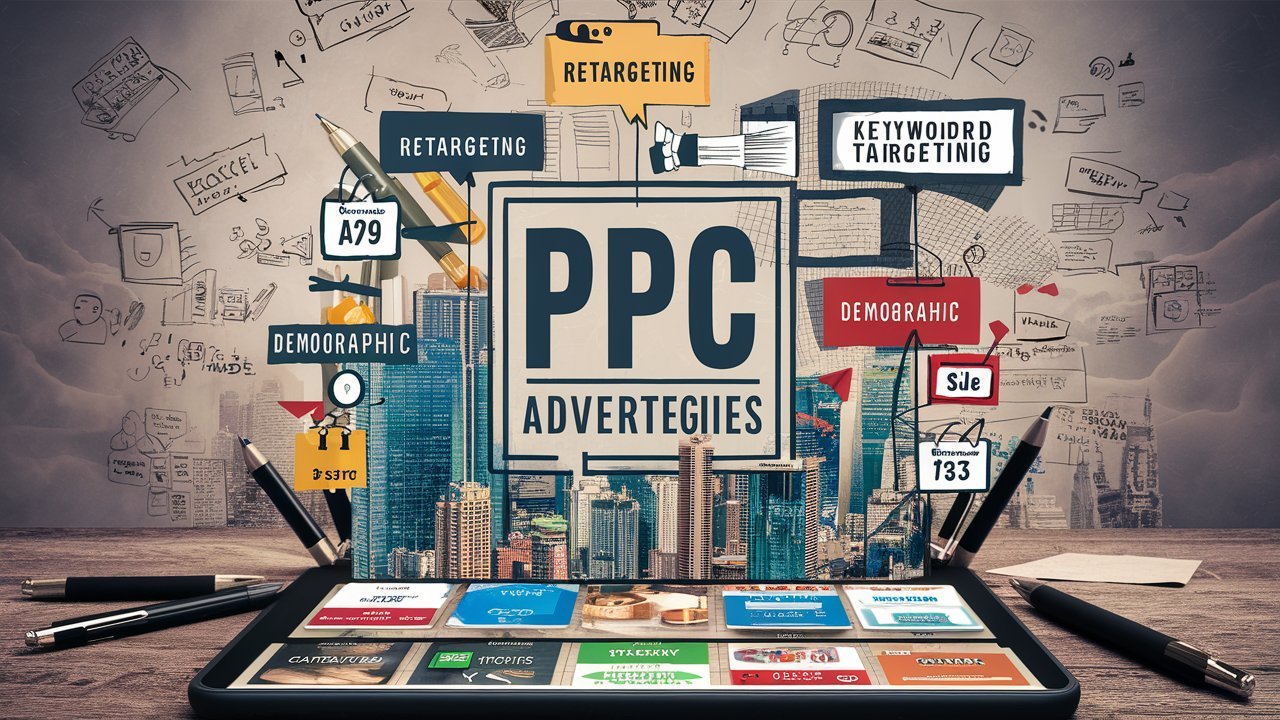Introduction
Navigating the world of Pay-Per-Click (PPC) advertising can be daunting, especially for beginners. However, with the right strategies and tips, you can create successful PPC campaigns that drive traffic and conversions. This article provides a comprehensive guide to help you master PPC advertising and achieve your marketing goals.
Understanding PPC Advertising
PPC advertising is a model of internet marketing where advertisers pay a fee each time one of their ads is clicked. Essentially, it’s a way of buying visits to your site rather than attempting to earn those visits organically. Search engine advertising is one of the most popular forms of PPC. It allows advertisers to bid for ad placement in a search engine’s sponsored links when someone searches on a keyword related to their business offering.
Benefits of PPC Advertising
PPC advertising offers several advantages:
Immediate Results: Unlike organic search, PPC ads can drive traffic to your website almost instantly.
Targeted Reach: You can target specific keywords, demographics, and even geographic locations.
Measurable ROI: PPC campaigns provide detailed performance metrics, allowing you to measure your return on investment accurately.
Control Over Budget: You can set a daily or monthly budget, ensuring you don’t overspend.
Flexibility: PPC allows for quick adjustments to your campaigns based on performance data.
Setting Up Your PPC Campaign
To set up a successful PPC campaign, follow these steps:
Define Your Goals: Determine what you want to achieve with your PPC campaign, such as increasing website traffic, generating leads, or boosting sales.
Choose a Platform: Decide where to run your ads, such as Google Ads, Bing Ads, or social media platforms.
Set a Budget: Allocate a budget that aligns with your goals and financial capabilities.
Create Ad Groups: Organize your ads into groups based on similar themes or keywords.
Write Ad Copy: Craft compelling ad copy that captures attention and encourages clicks.
Keyword Research and Selection
Keyword research is crucial for PPC success. Use tools like Google Keyword Planner, SEMrush, or Ahrefs to find relevant keywords. Focus on high-intent keywords that potential customers are likely to use when searching for your products or services. Long-tail keywords, although less frequently searched, often have higher conversion rates as they indicate specific intent.
Crafting Compelling Ad Copy
Your ad copy should be clear, concise, and compelling. Include a strong call-to-action (CTA) that encourages users to click on your ad. Highlight unique selling points and benefits to differentiate your ad from competitors. Use emotional triggers and power words to make your ad more persuasive.
Landing Page Optimization
A well-optimized landing page is essential for converting clicks into customers. Ensure your landing page is relevant to the ad and provides a seamless user experience. Include clear CTAs, engaging visuals, and concise content. Optimize for mobile devices and ensure fast loading times to prevent users from bouncing.
Monitoring and Analyzing PPC Performance
Regularly monitor your PPC campaigns to track performance and make necessary adjustments. Key metrics to watch include click-through rate (CTR), conversion rate, cost per click (CPC), and return on ad spend (ROAS). Use tools like Google Analytics and the analytics provided by your PPC platform to gather insights and optimize your campaigns.
Common PPC Mistakes to Avoid
Avoid these common mistakes to improve your PPC campaign performance:
Ignoring Negative Keywords: Use negative keywords to prevent your ads from showing for irrelevant searches.
Overlooking Mobile Optimization: Ensure your ads and landing pages are optimized for mobile users.
Neglecting Ad Testing: Regularly test different ad variations to find the most effective copy and design.
Setting and Forgetting: Continuously monitor and adjust your campaigns based on performance data.
Focusing Solely on CPC: Consider other metrics like conversion rate and ROAS to get a comprehensive view of your campaign’s success.
Conclusion
PPC advertising is a powerful tool for driving traffic and conversions. By understanding the fundamentals, setting clear goals, conducting thorough keyword research, and continuously monitoring performance, you can create successful PPC campaigns. Avoid common pitfalls and stay adaptable to maximize your return on investment. Implement these tips to navigate the world of PPC advertising and achieve your marketing objectives.








